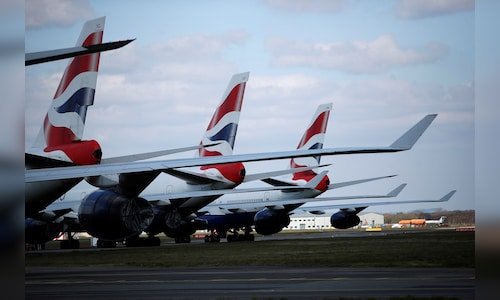Exclusive: British Airways CEO on navigating closed airspaces and oil price volatility

Discussing the impact of geopolitical tensions, Doyle explained, “Russian airspace is closed. We’ve got limitations in European airspace… but we are used to having to navigate through changing circumstances.”
British Airways operates across 80 countries, flying to 200 cities globally, which demands swift adaptation.
Doyle said, “Our flying programme has largely been unaffected by the changes and restrictions, and I’m proud of how my team handles these challenges.”
Crude oil price volatility, influenced by escalating tensions in West Asia, remains another major concern.
“We try to hedge risk,” Doyle said, “but ultimately, you could spend a lot of time trying to figure out which direction it will go. All I think you’ve got to do is be flexible in the way you manage your business.”
Despite these external pressures, British Airways is leading the push towards sustainability, especially in terms of sustainable aviation fuel (SAF).
“We have a commitment to get to 10% sustainable aviation fuel by 2030, and as a group, we’ve secured about 30% of that supply,” Doyle stated.
He emphasised the need for further investment in SAF production, saying, “We need policymakers to help us get more production built, whether that’s plants in the UK and Europe to match the pace we see in the US. I think that’s going to be a challenge as we look beyond 2030.”
British Airways’ ambitious investments are not limited to sustainability. The airline continues to prioritise India, a key market in its global expansion strategy. “India is our second biggest market,” Doyle noted, adding that BA operates 50 flights a week and plans to increase this. “We are very ambitious. Our track record of 100 years serving the market speaks for itself.”
While geopolitical restrictions and fluctuating oil prices pose significant challenges, British Airways remains committed to long-term growth, with India playing a crucial role in its expansion plans.








